Gitium Wordpress Plugin - Rating, Reviews, Demo & Download

Plugin Description
Automatic git version control and deployment for your plugins and themes integrated into wp-admin.
About the makers
This plugin was developed by the crafty people at Presslabs—the Smart Managed WordPress Hosting Platform. Here we bring high-performance hosting and business intelligence for WordPress sites. In our spare time, we contribute to the global open-source community with our code.
We’ve built Gitium back in 2013 to provide our clients a more simple and error-free method to integrate a new git version control into their code management flow.
What is Gitium?
This plugin enables continuous deployment for WordPress, integrating with tools such as Github, Bitbucket or Travis-CI. Theme or plugin updates, installs and removals are all automatically versioned. Ninja code edits from the WordPress editor are also tracked by the version control system.
Why is Gitium?
Gitium is designed with responsible development environments in mind, allowing staging and production to follow different branches of the same repository. You can also deploy code by simply using git push.
Gitium requires git command line tool with a minimum version of 1.7 installed on the server and the proc_open PHP function enabled.
Gitium features:
-preserves the WordPress behavior
-accountability for code changes
-safe code storage—gets all code edits in Git
Development
For more details about Gitium, head here: http://docs.presslabs.com/gitium/usage/
Receiving is nicer when giving
We’ve built this to make our lives easier and we’re happy to do that for other developers, too. We’d really appreciate it if you could contribute with code, tests, documentation or just share your experience with Gitium.
Development of Gitium happens at http://github.com/PressLabs/gitium
Issues are tracked at http://github.com/PressLabs/gitium/issues
This WordPress plugin can be found at https://wordpress.org/plugins/gitium/
Screenshots
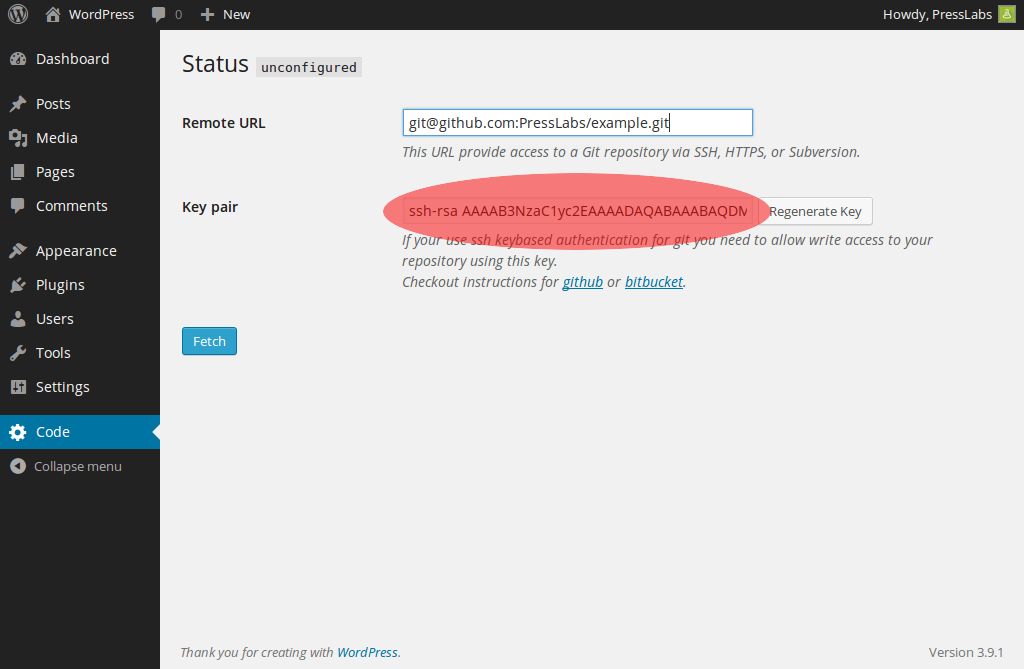
Setup step 1: Get SSH Key
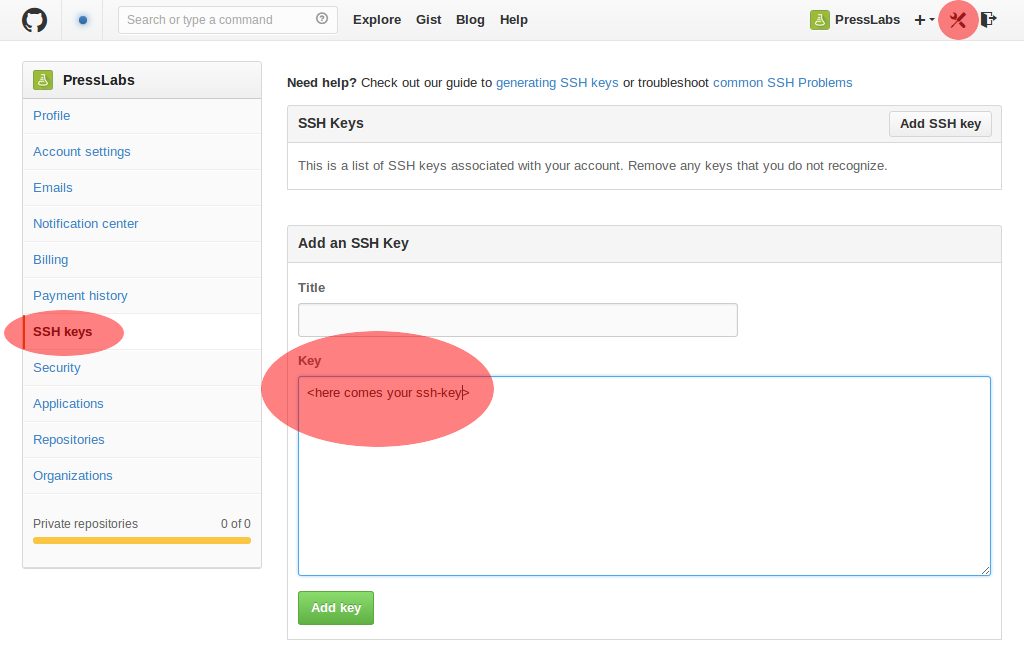
Setup step 2: Set SSH Key (Github)
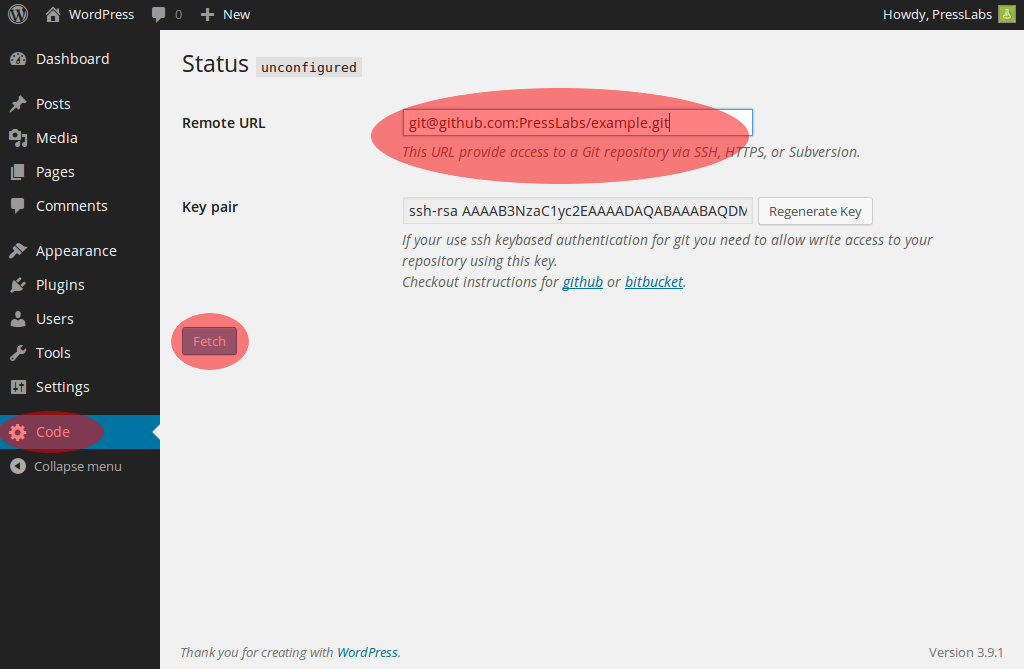
Setup step 3: Add remote repository
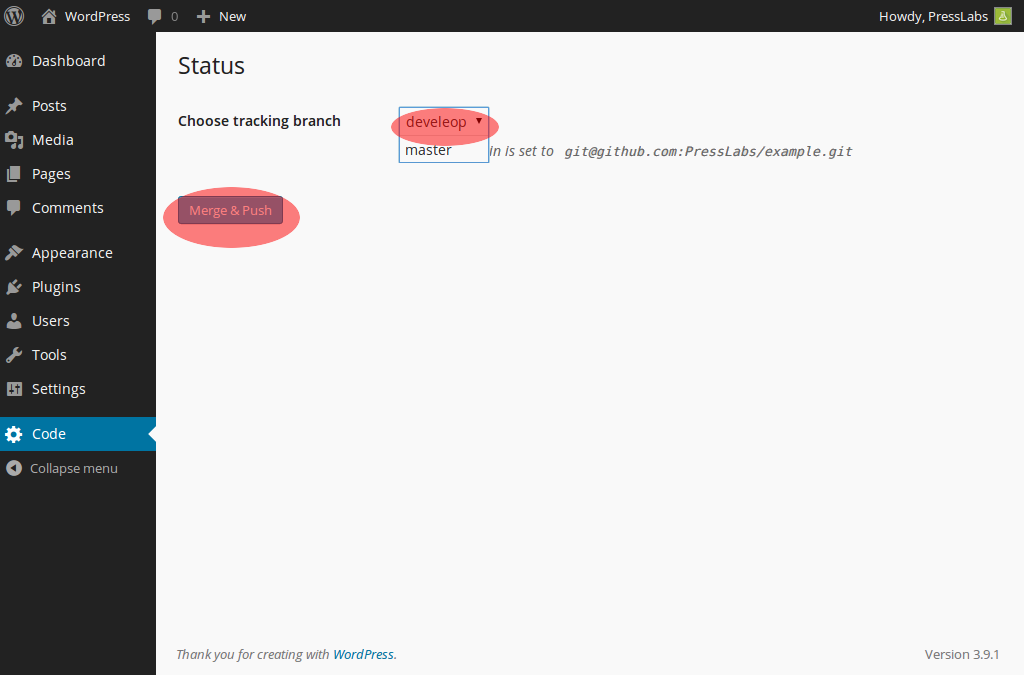
Setup step 4: Choose following branch
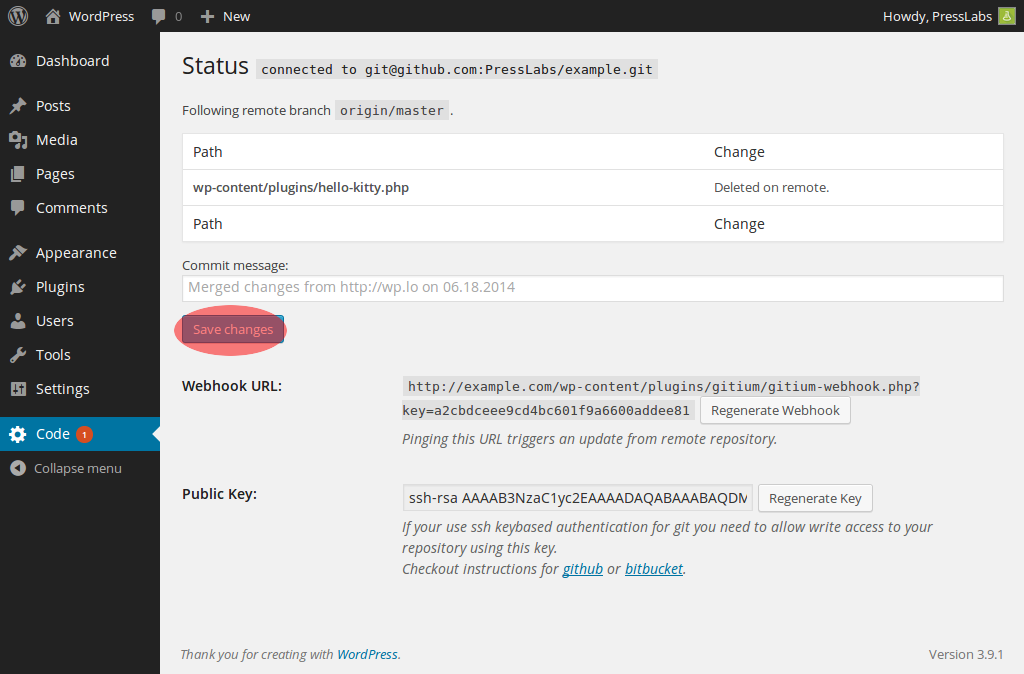
Commit local changes





